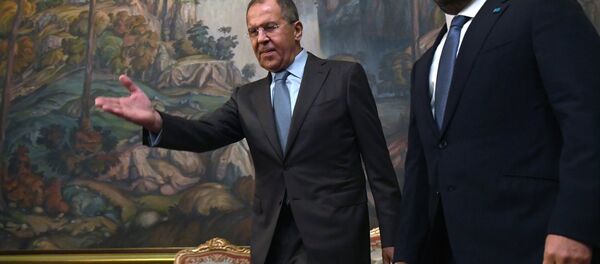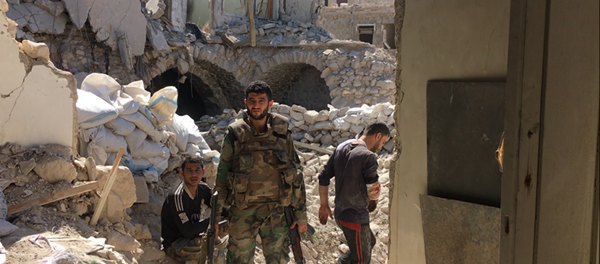MOSCOW (Sputnik) — On September 9, Russia and the United States reached an agreement for a peace process in Syria, engulfed in a raging war between government forces, opposition and terrorist groups like Daesh and the Jabhat Fatah al-Sham (formerly known as al-Nusra Front), both outlawed in Russia and many other countries.
On September 17, a US-led coalition airstrike on Syrian soldiers in the Deir ez-Zor province claimed at least 60 lives, with Washington claiming the attack was a mistake. It was followed by an attack on a UN-Syrian Arab Red Crescent humanitarian convoy on September, 20, in which, according to the United States, Russia was involved. Russia has denied the allegations saying that it had concrete evidence of the presence of a US drone in the area of the attack on September 17.
Russia was willing to negotiate a re-establishment of the ceasefire, but before those negotiations could take place, the United States announced the suspension of bilateral talks on Syria.
US Unilaterally Shuts Dialogue
"The United States is suspending its participation in bilateral channels with Russia that were established to sustain the Cessation of Hostilities," the US Department of State spokesman John Kirby said in a press release on Monday.
Russia and the United States have exhausted all options trying to work out a joint solution to reach an agreement on Syria, White House spokesman Josh Earnest said at a press briefing later on Monday
"What’s clear is there is nothing more for the United States and Russia to talk about with regard to trying to reach an agreement that would reduce the violence in Syria," he said.
Earnest added that the United States would continue working on alternative plans for the Syrian crisis resolution, but did not elaborate on what avenues it would pursue.
The United States did not exclude the possibility of multilateral talks, according to the US Department of State spokesperson Elizabeth Trudeau. She said that the Secretary of State John Kerry had notified Russian Foreign Minister Sergei Lavrov of the decision to end bilateral talks, nevertheless the United States and Russia had been directly communicating and actively discussing the situation.
Lack of Alternatives
The Russian Foreign Ministry saw this announcement as the United States' attempt to shift the blame for their own inability to fulfill the obligations imposed on them by the peace agreement.
"Washington has simply failed to live up to the key commitment under the agreements — to facilitate the humanitarian assistance to residents of Aleppo city," Russian Foreign Ministry's spokeswoman Maria Zakharova said Monday in an interview with Russia's First Channel television.
Russia's ambassador to the United Nations Vitaliy Churkin said on Monday that he did not see any possible alternative to the Russian-US cooperation on Syria and expressed his regret over the end of talks.
Churkin added that the existing tension between the United States and Russia did not equate to Cold War and should not be "over-dramatized."
Concern Over US Decision
"The UN will continue to push energetically for a political solution of the Syrian conflict regardless of the very disappointing outcome of intense and long discussions among two crucial international stakeholders," de Mistura said.
The end of the bilateral discussion would lead to the aggravation of the situation in Syria, Jihad Makdissi, a leader of the Moscow-Cairo opposition group told Sputnik.
"The end of dialogue hampers the political process, and we are urging to resume it," Makdissi stressed.




